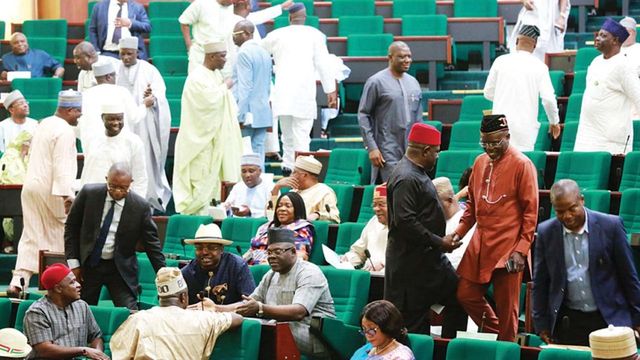Despite apparent uncertainties surrounding the economic health of the housing sector in major cities, Abuja property market appears to have rebounded, with the juicy accommodation package granted the legislators by the Federal Government.
The Guardian learnt that following the payment of their welcome packages, many of the Senators, their House of Representatives counterparts and assistants who are new comers to the Federal Capital Territory, Abuja have besieged offices of notable estate surveyors and valuers as well as popular agents in search of accommodations.
Every four years of the election cycle, about 70 per cent of them are first timers. Some of them now have to do with hotel accommodations till suitable residential apartments are found.
According to the prescription of the Revenue Mobilization, Allocation and Fiscal Commission (RMAFC) in its Remuneration Package for political office holders, each senator is entitled to a combined furniture and accommodation allowance of N10,132,000 on assumption of office. While the accommodation allowance is N4,052,800, and furniture allowance is N6,079,200.
Similarly, each member of the House of Representatives, is entitled to N9.926, 062.5, comprising furniture allowance of N5,955,637 and accommodation allowance of N3, 970,425.
The development has increased activities in the market. Nigeria Real Estate Report 2019 released by Ubosi Eleh and Company, an estate surveying and valuation firm, projected that letting and sale of real estate will pick up from March to September in Abuja. After September, the tempo will drop by at least 60- 70 per cent and completely flatten out by the first quarter of 2020.
It is estimated that another 200 rental properties in the range of N1million- N2million per annum will be in demand to satisfy the needs of their aids and numerous assistants.
The report further projected that properties prices between N40 million – N69 million will experience increased demand. “Our market indicates that this demand could easily reach as high as 120 – 150 units of detached houses, terraces, bungalows and flats,” according to Mr. Chudi Ubosi, Principal Partner, Ubosi Eleh and Company.
It was learnt that steadily rising housing rents in many of the FCT highbrow areas, have been worsen by the coming of the prospective tenants to the administrative capital, especially in areas such as Asokoro, Maitama and Apo Quarters.
The issue has reignited the discussion whether to build permanent legislative quarters and do away with monitisation policy. Notwithstanding the crave for residential apartments, the vacancy rates in those highbrow areas have remained high due to the high rents fixed for such properties.
The company’s report said: “Our market survey amongst developers indicated that where’s sales were being undertaken at therate of five units monthly about four to five years ago, now it is more like one unit per quarter.” Ubosi said: “Properties that have a fair demand in Abuja are those priced below the N60 million range. Numerous practitioners confirmed a fair amount of activity in the price range. Regarding, the high-priced real estate, N150 million and above, the sales response has been from slow to non-existent.”
Another estate surveyor and valuer, Mr. Samson Agbato, confirmed that there has been an increase in the property market in Abuja due to the release of funds by the Federal government to the legislators to cater for their allowances, especially for accommodation.He disclosed that government’s funds drive the property market, and ancillary services, as the city is an administrative centre that thrives on politics, consumption and services.

